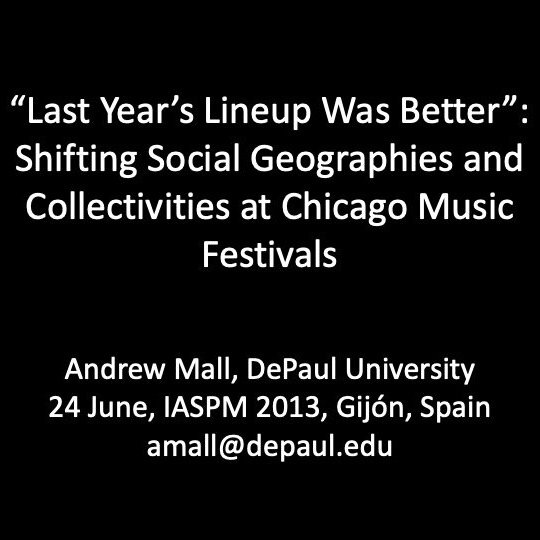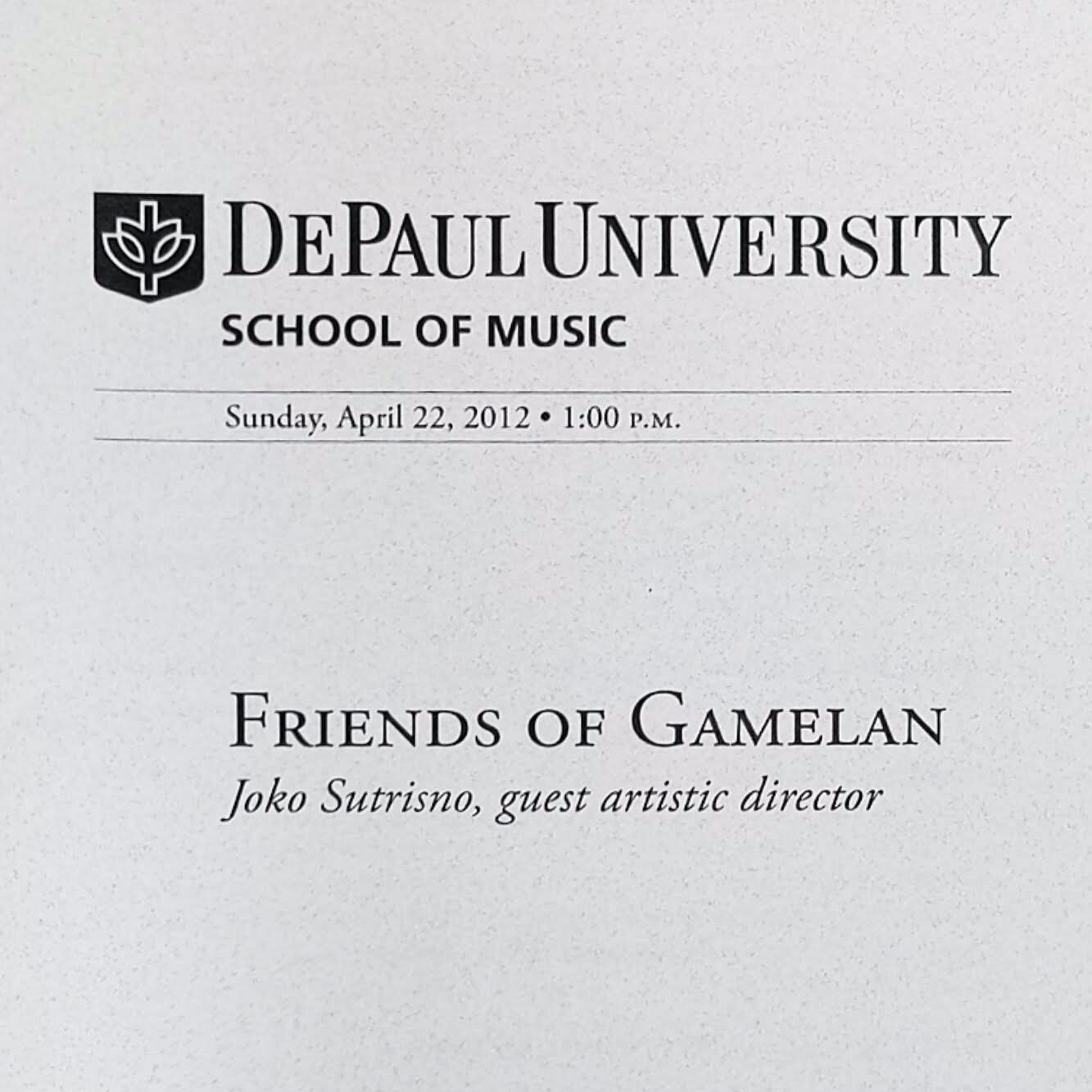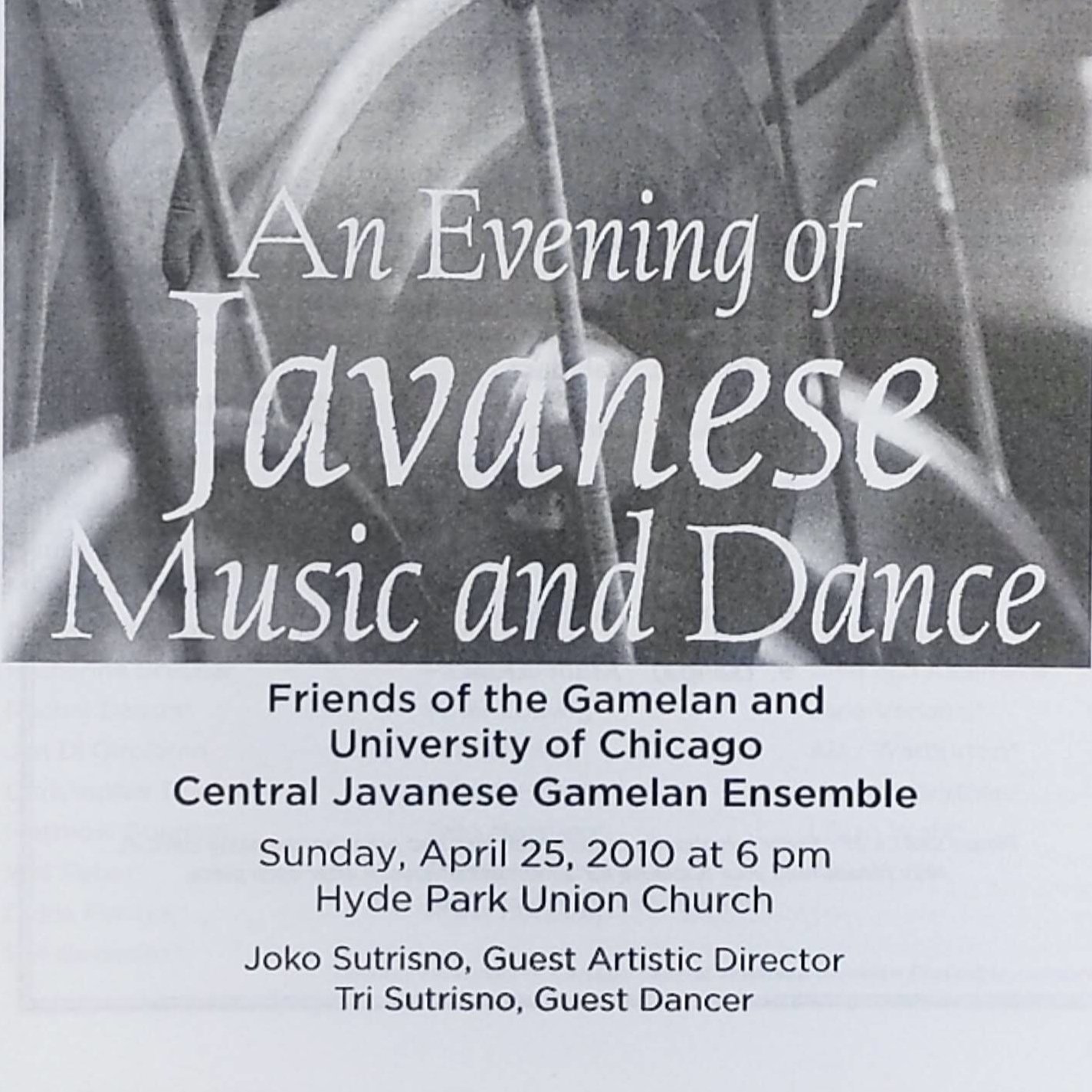How this class is preparing students for the world of music festivals
Northeastern Global News Magazine (2023). Want to try your hand at a designing a music festival or learn about the history of these events? These Northeastern experiential learning courses help create the next generation of festival organizers.
Musical Communities of Chicago
This course introduces students to the diverse musical communities of Chicago through texts and media, workshops with local musicians and arts workers, experiential activities, and your own research projects. Our five-week program in Chicago provides a unique opportunity for us to explore a range of musical practices and intersecting issues: arts policy, gentrification, tourism, and urban development, among others. Experiential learning activities are a core of our time together in Chicago as we engage in this city’s musical life. These include attending concerts and festivals together, excursions to historical musical sites within Chicago, interviewing local experts, and soundwalks, among others.

Studying Congregational Music: Chapter 7
Studying Congregational Music, Routledge (2021). Chapter 7, “Political Economy and Capital in Congregational Music Studies: Commodities, Worshipers, and Worship,” by Andrew Mall.

“Last Year’s Lineup Was Better”: Shifting Social Geographies and Collectivities at Chicago Music Festivals
IASPM conference presentation (2013). Drawing on many years of ethnographic research in Chicago, Illinois, this paper compares and contrasts several civic and commercial popular music festivals, such as Blues Fest, Cornerstone, Jazz Fest, Lollapalooza, and Pitchfork. I use mutable, multi-dimensional center-periphery theory to illustrate and explain the social flows within festival spaces, the differentiating strategies of festivals, and the compromises that emerge when organizers reconcile their needs with their audiences’ expectations. In examining the intersecting and overlapping representations of mainstreams and undergrounds at music festivals, my paper contributes to research on the political economies, social geographies, and taste communities of popular music events.
Discover/Explore Chicago’s Music Scene
This course introduces students to the diverse musical offerings in the Chicago metropolitan area. Students will learn about the wide variety of music- and arts-related activities across many genres and styles. In addition to the excursions taken during Immersion Week and throughout the Fall Quarter, class discussions will focus on topics central to understanding Chicago’s music scene in both its historical and contemporary contexts.


Friends of the Gamelan Concert
Friends of the Gamelan concert, April 22, 2012 (DePaul University)




What Would the Community Think: Communal Values in Independent Music
voiceXchange (2006). An enthusiastic post on a website, a supportive audience in a smoky club, an animated conversation at a local music store—every interaction between fans of independent music binds them in a community. This paper presents my initial research into the ways in which the independent music community’s boundaries and values are expressed and shared in evolving social networks by means of interactions that authenticate participants into this community.
Search and navigate extras
- music industries
- festivals
- gamelan
- Boston
- God Rock Inc
- CCM
- Northeastern University
- Christian rock
- panels
- Tufts University
- worship
- congregational music
- Northeastern Global News
- SCM
- record labels
- Nashville
- methods
- ethics
- Chicago
- University of Chicago
- punk
- SEM
- radio
- Taylor Swift
- subculture
- capital
- Furnace Fest
- AMS
- TikTok
- IASPM-US
- hardcore
- sing-alongs
- Amy Grant
- crossover
- introductions
- emo
- vinyl
- TIME
- scene
- AAR
- Beer & Hymns
- MEIEA
- Christianity Today
- DePaul University
- Universal Music Group
- awards
- Future of Pop
- community
- Keith Green
- Ticketmaster